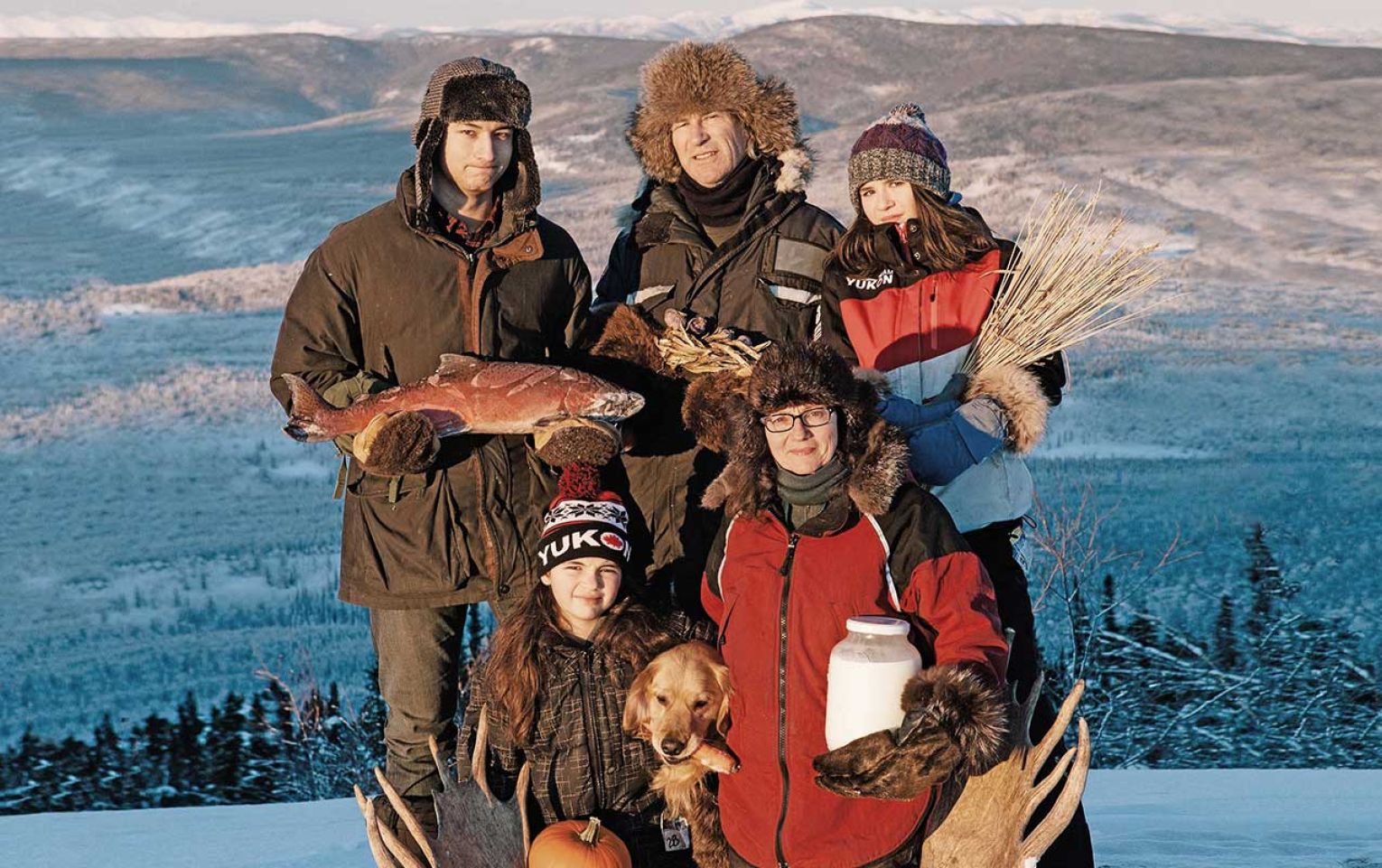
First We Eat: Finding joy in community and moose-bone broth
A Northern twist on all you can eat.
Substituting rhubarb juice for vinegar, boiling moose bones into broth, and fermenting milk with Kefir grains. These are just some of the ways doctor-turned-filmmaker Suzanne Crocker had to get inventive as she embarked on a year-long experiment to feed her family of 5.
The challenge: Eat only food that was hunted, fished, foraged, grown, and raised in and around Dawson City, on the traditional territory of the Tr'ondëk Hwëch'in First Nation.
With no real passion for cooking but the firm belief that you learn best by actively doing, Suzanne found how extreme necessity is often the breakthrough for creativity and change.
Fresh off the festival circuit and now available to watch across the North on Northwestel Community TV.
Funded in part by Northwestel, read all about this ground-breaking, award-winning film made in Dawson City with community at the heart.
Fresh food. No truck in sight.
The inspiration came when Suzanne realized that 97% of Yukon’s food is trucked in from thousands and thousands of kilometers away.
"Did you know that 50% of the nutrients in fresh greens like spinach are lost within 5 days of picking? I wondered what nutrition would be left by the time greens reach my plate in January"
A century ago, Dawson produced 97% of its own food and prior to this, the Tr’ondëk Hwëch’in and other Yukon First Nations ate 100% off the land. The question arose. Can we do it again?
Over the course of the year, Suzanne discovered how the short growing season in the Klondike produces a surprising bounty of vegetables, berries, eggs, herbs, and apples. And with it comes a thriving network of home gardeners, farmers and foragers happy to share the knowledge. We follow her journey onscreen from dairy farms to local beekeepers.
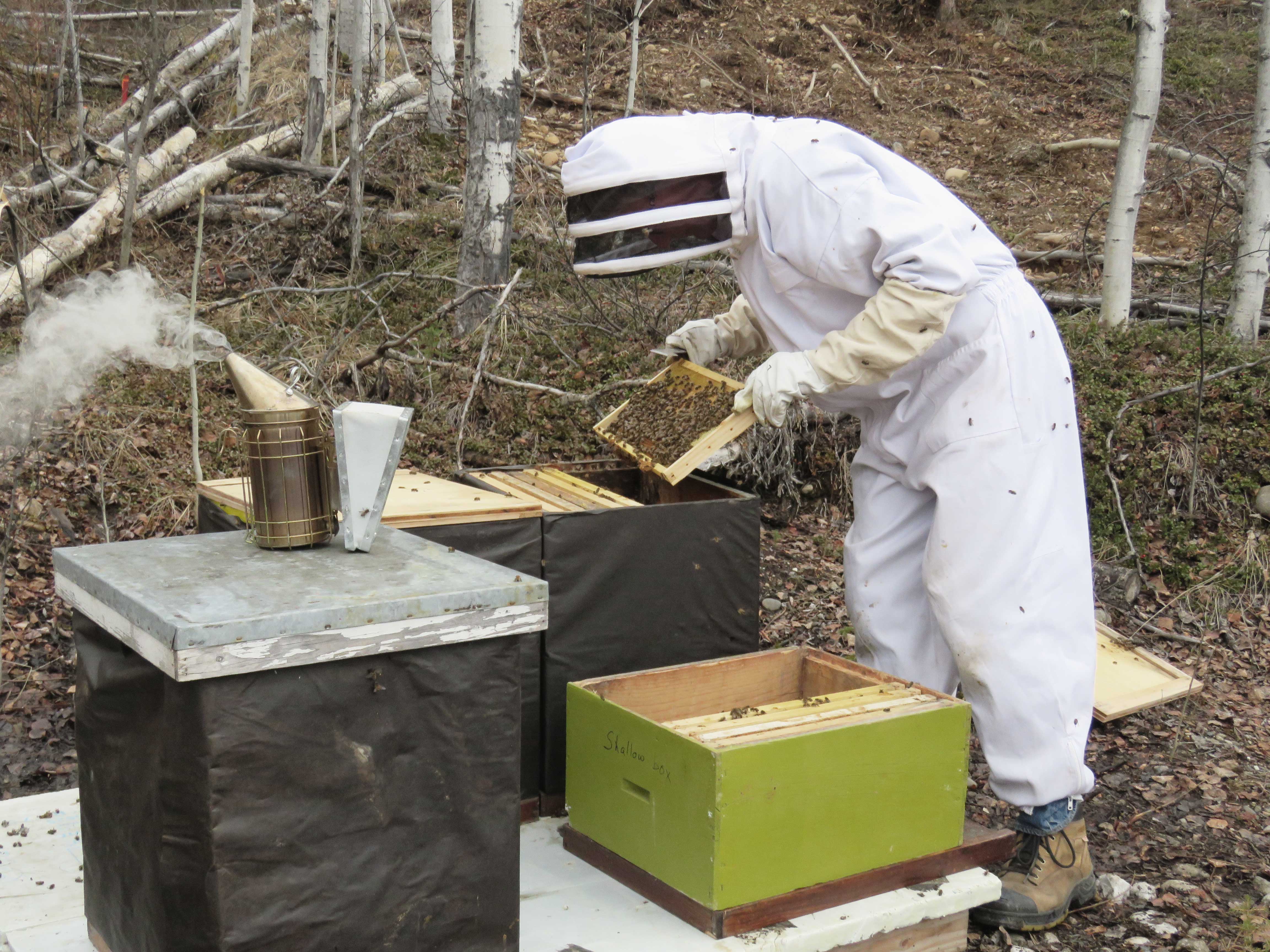
Dave McBurney the beekeeper
-SC--BLOG.jpg)
Victor Henry with wild rhubarb
"There was wild rhubarb growing in my garden the entire time. I never knew."
Many of the home-grown resources in Dawson City feel hidden from sight. In fact, some farms are only accessible by river. This film is a way to raise awareness and connect northerners to local farming communities and food sovereignty causes. If you are looking for farm listings and helpful tips to add more local to your diet, firstweeat.ca/what-can-i-do/ is a great place to start.
Our community of knowledge-keepers
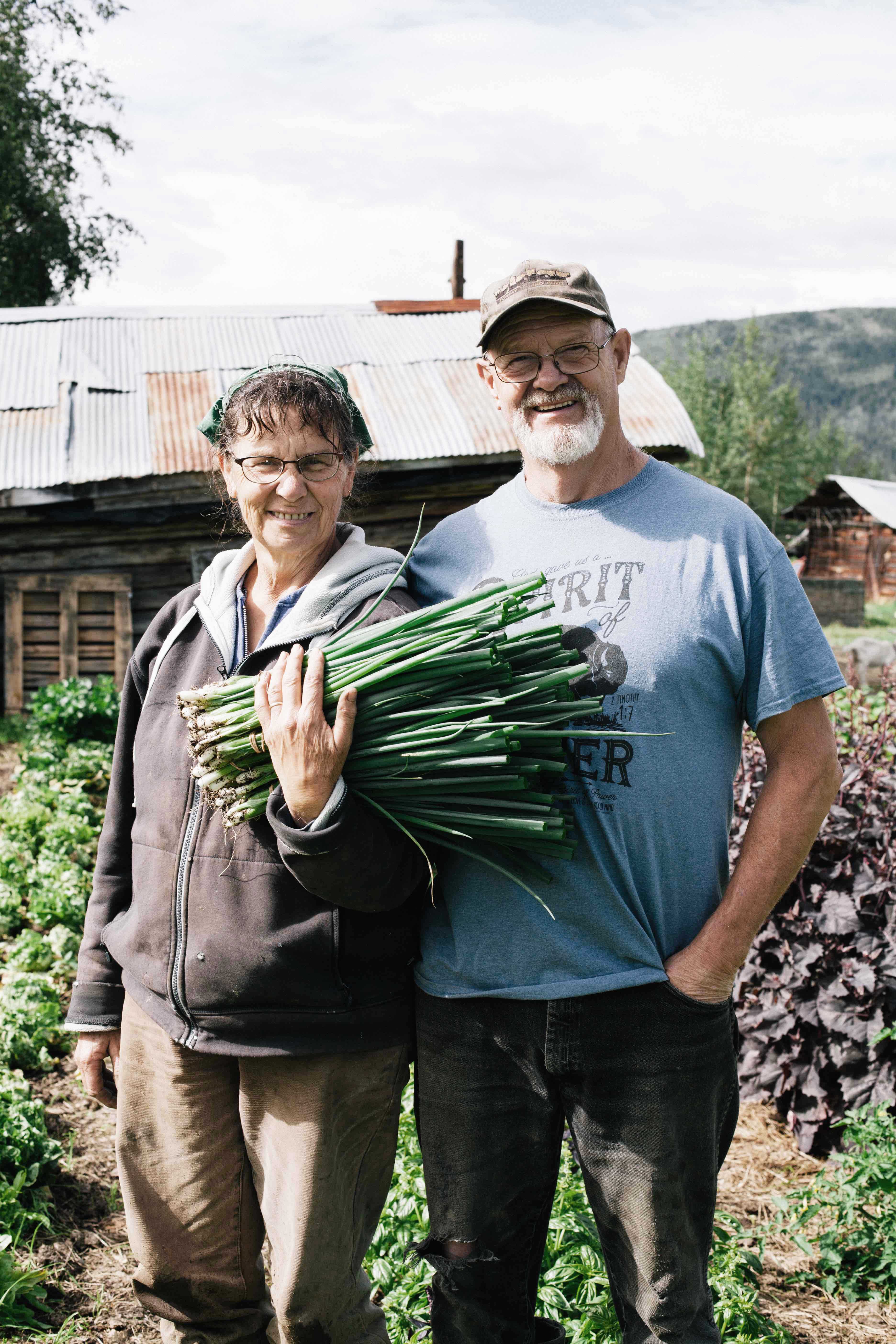
Becky and Paul Sadler
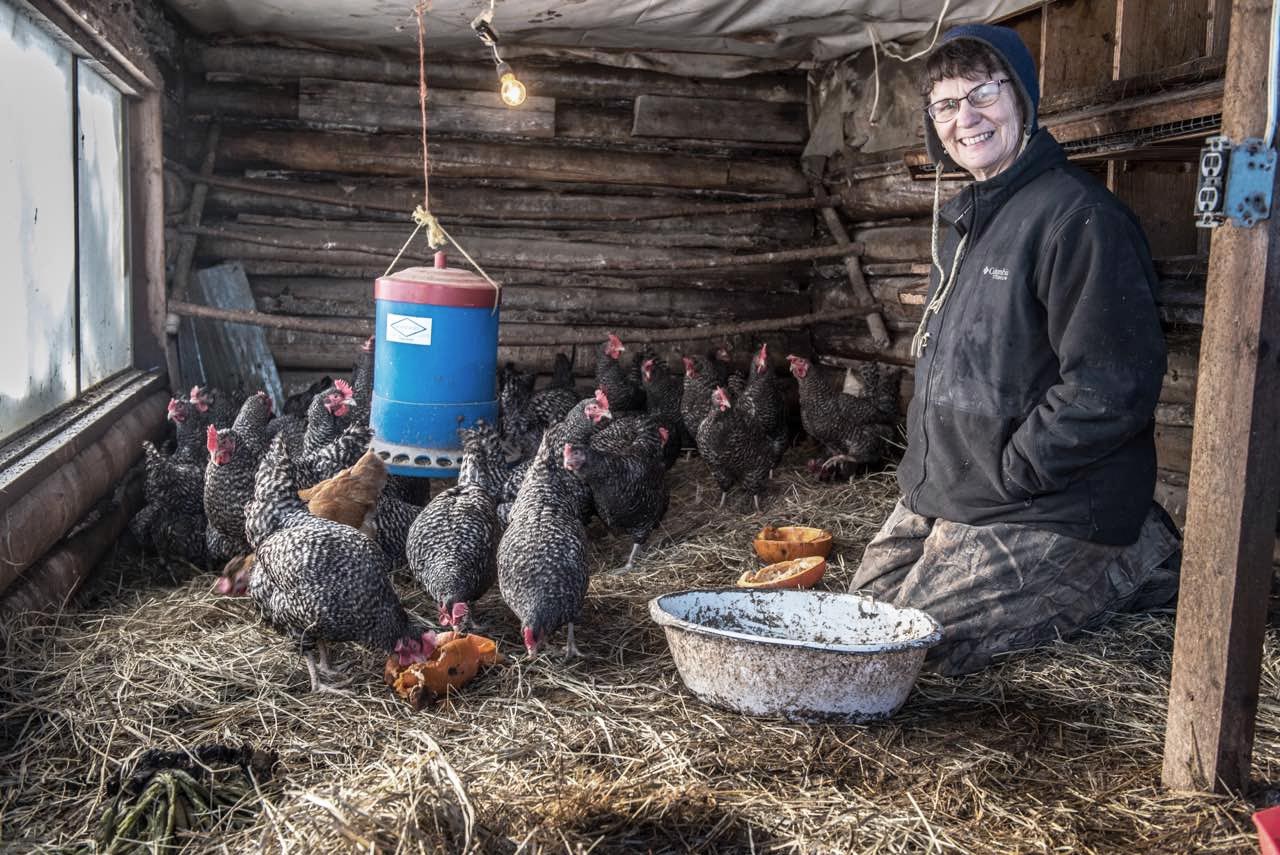
Becky Sadler with chickens
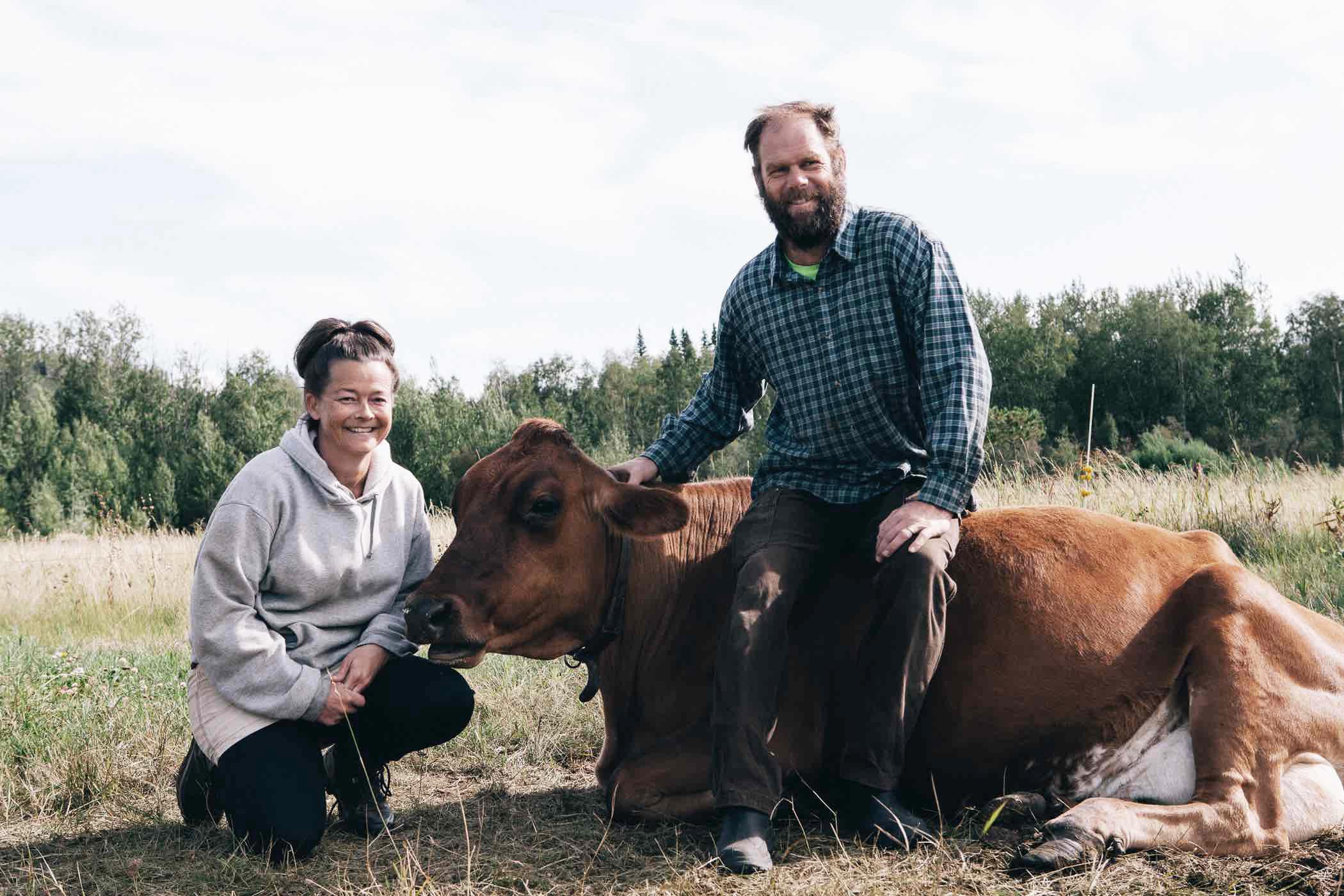
Jen and Loren Sadler with cow Summer
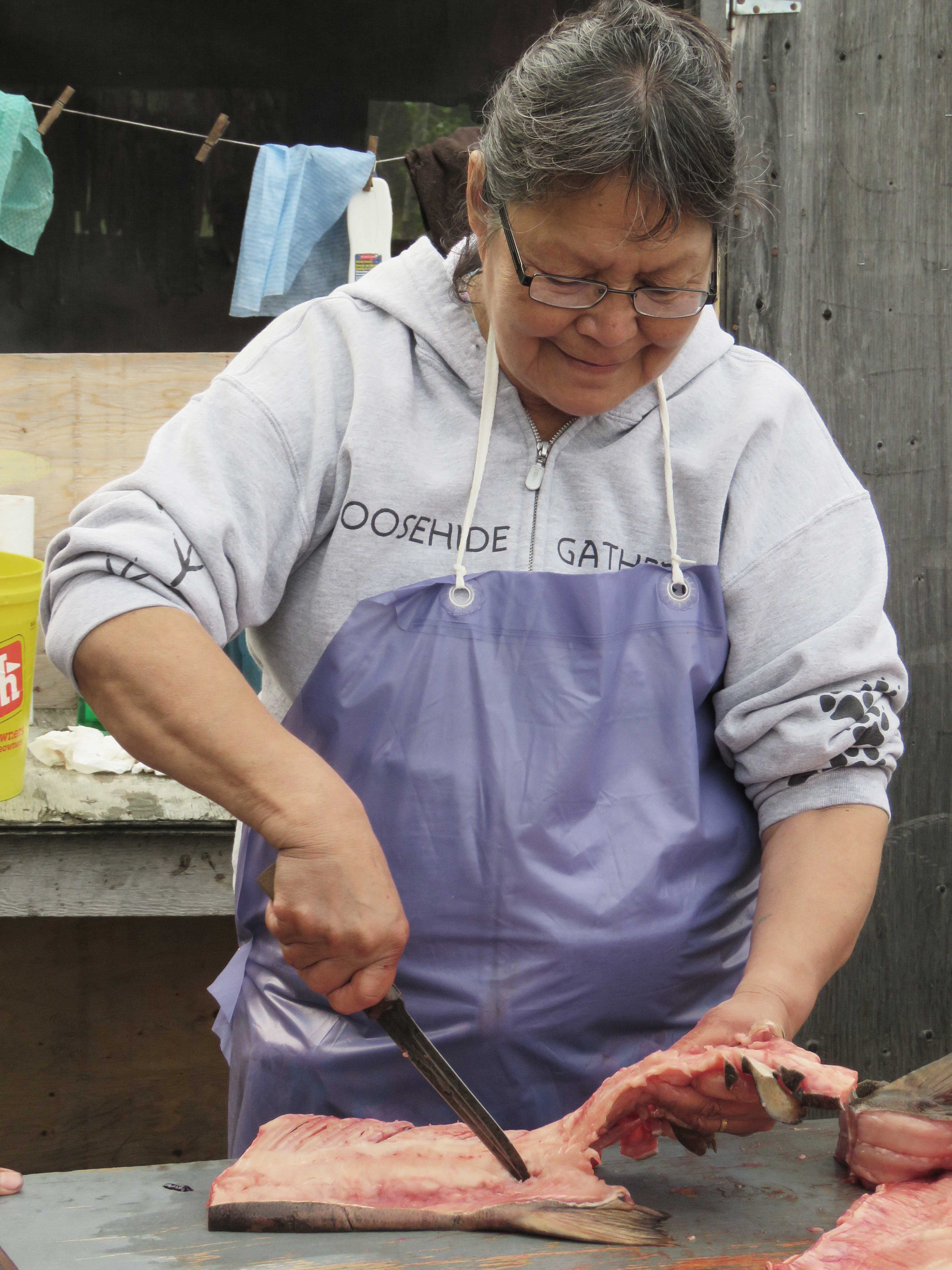
Elder Angie Joseph-Rear processing Chum Salmon
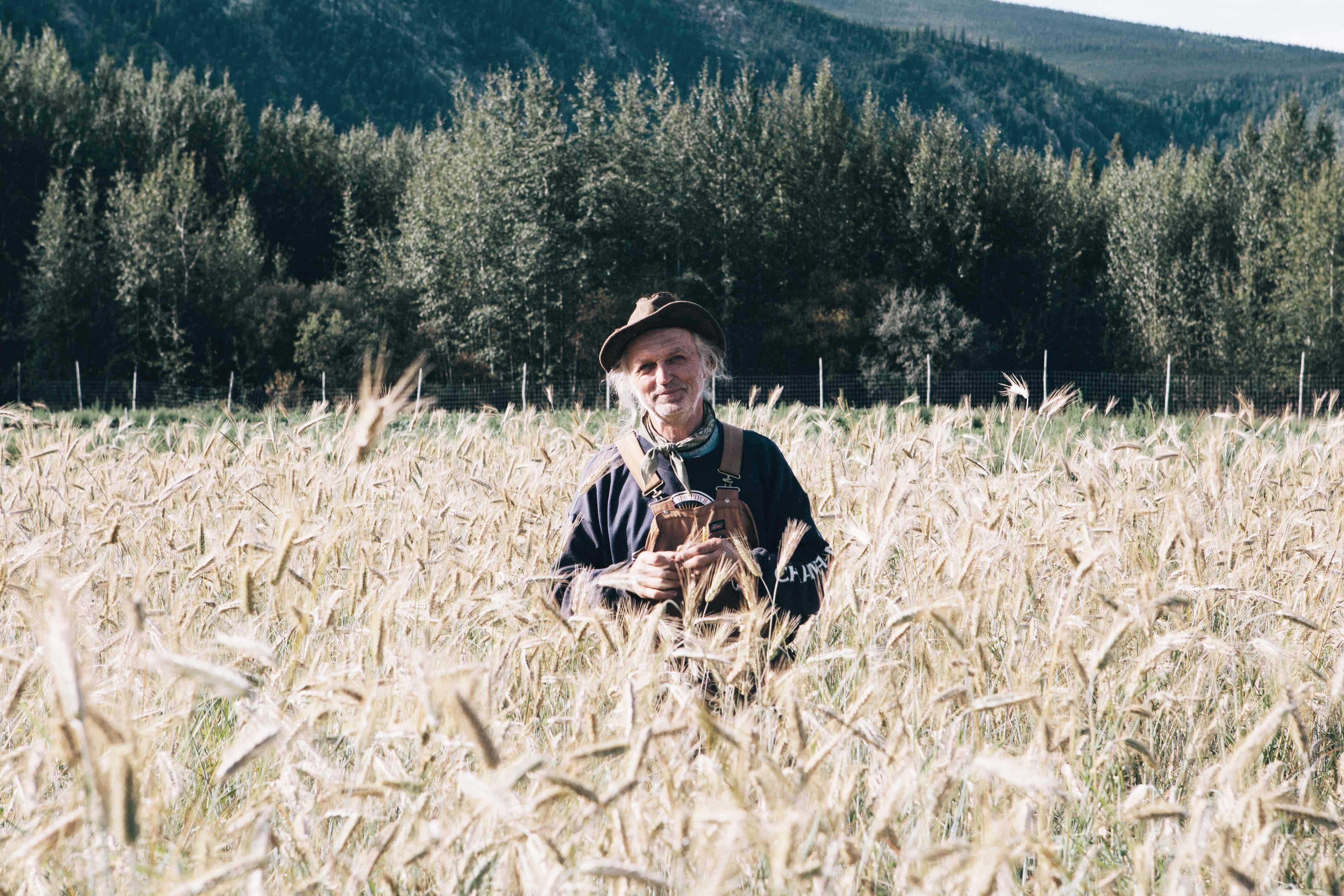
Otto at Kokopellie Farm
Up here there’s a saying:
"In the summer we eat above the ground, in the winter we eat below the ground."
Learning how much nutrition can be sourced from one animal, and what can be grown, and what can be stored, Suzanne found a new joy in eating seasonally. Days were spent cooking meals from scratch, stretching out supplies to last all winter long. And much to the family's dismay, there were no holiday exceptions or easy-to-grab treats to turn to.
While some experiments like trying to extract salt from mud were not that popular, inventions like birch syrup ice cream have had staying power. Suzanne continues to support local farmers, advocate for making better food choices, and create her own locally grown recipes to this day, with a few additions from the Dawson General Store.
Her biggest surprise? Learning how much Vitamin D is in burbot liver – and that you can survive without coffee.
Ready to step up to the plate?
Watch the trailer here and schedule your next family film night with First We Eat.
Watch now on Northwestel Community TV. Channel 209.
Telling our northern stories. We’re proud to have supported over 80 film and television projects in Yukon and NWT since 2014. These projects have received over $3 million from the territories and the Canadian Media Fund (CMF).
Do you have an idea for your own Northern film? Find out how to submit a proposal with Northwestel Community TV.
